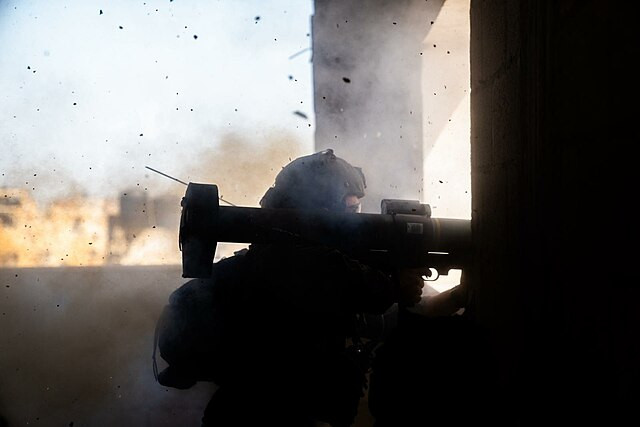Israeli military operations intensified across the Gaza Strip over the weekend, as reports surfaced Sunday that Muhammad Sinwar, the de facto head of Hamas's military wing in Gaza and brother of slain Hamas leader Yahya Sinwar, was killed in a targeted airstrike on a tunnel complex in Khan Younis. According to Saudi broadcaster Al-Hadath, Sinwar's body was found along with the remains of ten of his aides in the aftermath of the Israeli strike last week on an underground command center beneath the European Hospital.
Defense Minister Israel Katz told the Knesset's Foreign Affairs and Defense Committee on Sunday, "There's no official confirmation, but according to all the indications Muhammad Sinwar was eliminated." Israeli officials have not publicly confirmed the death, but the airstrikes were followed by additional bombings in the area, apparently to block access to the tunnel.
Sinwar's reported death comes amid Israel's largest ground offensive since March, with airstrikes and artillery fire escalating in multiple parts of the Gaza Strip. According to Gaza's Hamas-run health ministry, over 400 people have been killed in Israeli strikes since Thursday, including 103 fatalities overnight into Sunday. The ministry's figures claim more than 53,000 people have been killed or presumed dead since the war began, although the tallies do not distinguish between combatants and civilians and remain unverified.
Image is Muhammad Sinwar.
Video is circulating on Telegram.
Is that him? pic.twitter.com/ZsWYIEVZZs — Max (@MaxNordau) May 14, 2025
The Israeli military said it had struck over 670 targets in the past week, killing dozens of militants in preliminary strikes before the ground operation commenced. Lt. Gen. Eyal Zamir, Israel's chief of staff, said the military plan involves "dissecting" the Gaza Strip, with operations occurring in both the northern and southern regions. In central Gaza, Israeli drone and airstrikes killed at least 12 people, including children and women, according to hospitals in Deir al-Balah and Zweida.
Muhammad Sinwar had been elevated to the group's top military position after the July killing of commander Muhammad Deif and the October death of Yahya Sinwar. He was known for obstructing negotiations related to the release of hostages and was considered a key figure preventing a ceasefire agreement. He was wanted by Israel for his involvement in terrorist operations, including the 2006 kidnapping of Israeli soldier Gilad Shalit and for commanding Hamas's Khan Younis Brigade. Sinwar had been previously imprisoned in both Israeli and Palestinian jails.
Also reported killed in recent days was Zakaria Sinwar, another brother, who reportedly died in an Israeli airstrike in Nuseirat along with three of his children. He had worked as a lecturer at the Islamic University in Gaza.
Gaza's health system remains under strain. The Indonesian Hospital, the primary medical center in northern Gaza, shut down over the weekend due to heavy Israeli shelling. "There is direct targeting on the hospital, including the intensive care unit," said Dr. Marwan al-Sultan, the facility's director. He noted that about 30 patients and 15 staff remained trapped inside as Israeli forces operated "directly adjacent" to the site.
In Gaza City, a drone strike on Sunday afternoon killed at least seven Palestinians near a school sheltering displaced civilians, according to emergency services. In Jabaliya, a strike on one home killed nine members of a single family, while another attack killed 10 people, including seven children and a woman.
Meanwhile, Israeli officials said their negotiating team in Qatar is continuing efforts to secure the release of 58 hostages held by Hamas in exchange for a temporary ceasefire. Prime Minister Benjamin Netanyahu's office stated the proposed deal includes the exile of Hamas from Gaza and the militant group's disarmament-conditions Hamas has refused.
The war erupted on October 7, 2023, when Hamas-led militants killed 1,200 Israelis and abducted 251 others in a cross-border assault. Since then, Israel says it has killed some 20,000 combatants and 1,600 militants inside Israeli territory during the initial attack.






